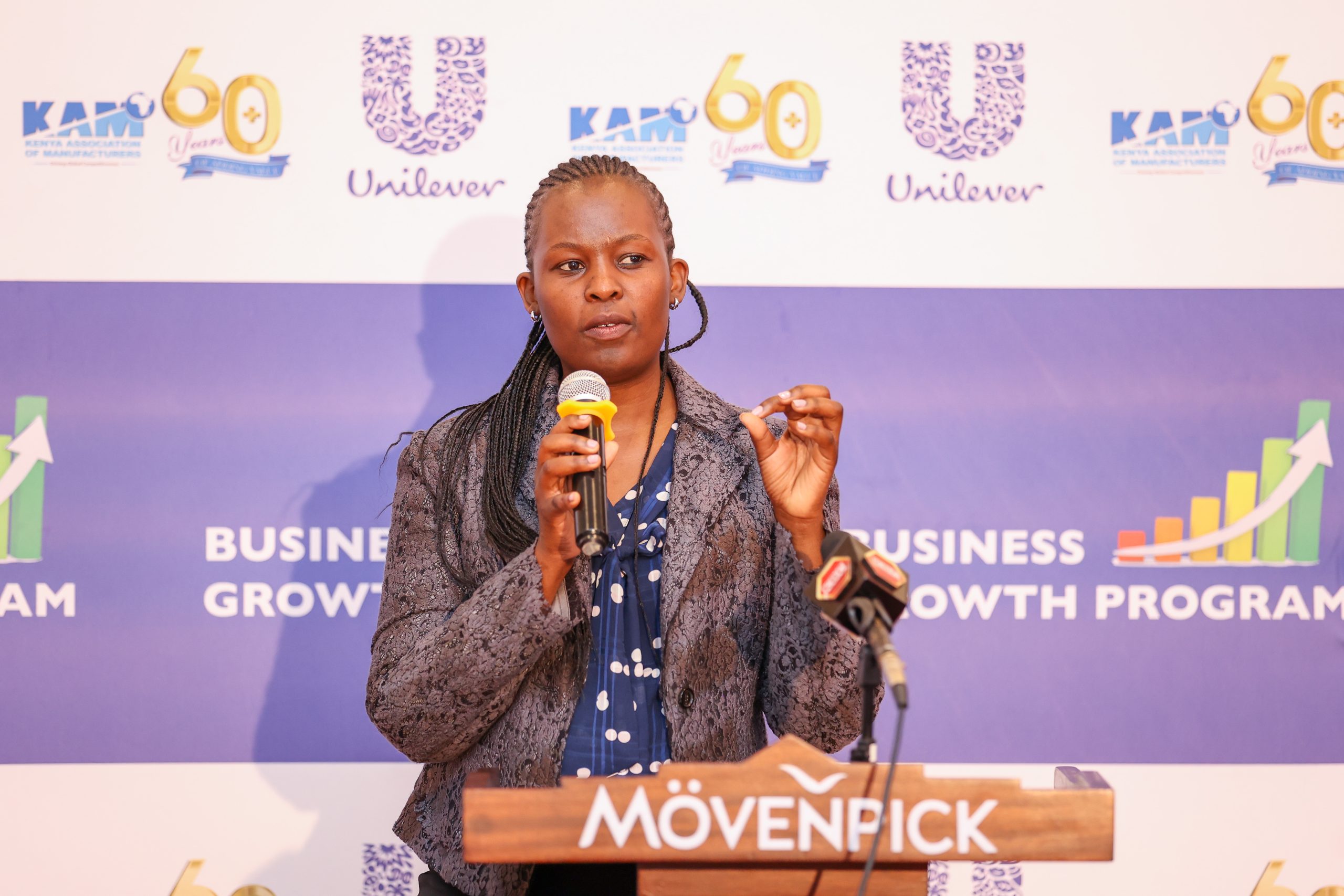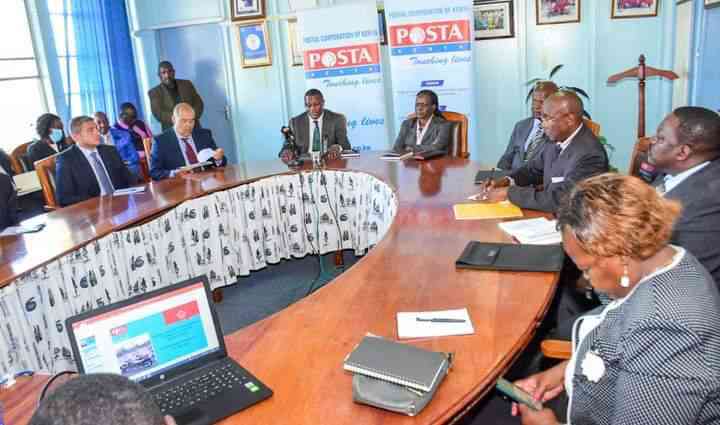
KAM, Unilever launch Business Growth Program
- KAM has prioritized SMEs in its Manufacturing 20by30 Strategy that seeks to increase the manufacturing sector’s contribution to GDP to 20% by 2030, subsequently, create 1 million jobs
The Kenya Association of Manufacturers (KAM) and Unilever Kenya have today launched the 2024 Business Growth Program. The program, which KAM kicked off in 2016, aims to provide manufacturing SMEs with the necessary tools, resources, and guidance to enhance their competitiveness, expand their market reach, and drive sustainable growth.
KAM Board Director and Manufacturing SME Hub Chair, Ms Ciiru Waweru-Waithaka noted that manufacturing SMEs play a critical role in providing innovative and unique products to citizens whilst contributing to the country’s socio-economic development goals, adding that it is the reason the Association continues to prioritize them.
“We set up the KAM Manufacturing SME Hub in 2019 with the goal of preparing, nurturing, and growing manufacturing SMEs to take full advantage of the available markets, not only in Kenya but also regionally and internationally. Additionally, we have prioritized SMEs in our Manufacturing 20by30 Strategy that seeks to increase the manufacturing sector’s contribution to GDP to 20% by 2030, subsequently, create 1 million jobs. Under the SME Development Pillar, we aim to provide a platform for SMEs to grow by progressively dismantling one-size-fits all approaches to challenges facing them and finding more nuanced ways to intervene and uplift micro, small and medium businesses,” she expounded.

KAM Head of Consulting and Business Development, Ms Joyce Njogu, noted that KAM has developed many programs to support the manufacturing sector. “Today, our focus is on the growth of Manufacturing SMEs, which the Business Growth Program seeks to actualize. As KAM, we passionately believe that collaborative initiatives, such as our partnership with Unilever, are pivotal in strengthening the SME sector. We expect that by the end of the program, manufacturing SMEs shall develop and implement successful business growth strategies and efficient processes and systems, subsequently, grow their business to reach regional and international markets,” added Ms Njogu.

Unilever Supplier Program Diversity Lead, Ms Rasoa Nekesa, urged manufacturing SMEs to source locally. “The impact of COVID-19 underscored the importance of localization for long-term survival. Unilever, in collaboration with KAM, has customized this program not only to assist SMEs scale up locally but also regionally and internationally. We are delighted to collaborate with KAM and expedite this initiative for our country,” added Ms Nekesa.
The 2024 Business Growth Program unfolds across seven modules, each crafted to address specific business needs with the overarching goal of enhancing SME competitiveness, expanding market reach, and fostering sustainable growth. The modules are:
- Module 1 – Business Growth Strategy Module, aims to equip Growth Oriented Enterprises (GOEs) with skills to formulate effective business strategies.
- Module 2 – Product Management and Diversification Strategies, provides effective methods for identifying and developing market opportunities, translating them into tangible products, and managing product life cycles.
- Module 3 – Market Development and Implementation Strategies, focuses on moving from conceptualization to a competitive marketplace efficiently.
- Module 4 – Manufacturing Finance Management, aims at equipping Growth Oriented Enterprises with skills in budgeting, working capital management, and financial analysis.
- Module 5 – Strategic Supply Chain Management, focuses on optimizing the supply chain for adaptability and agility, especially post-COVID-19 disruptions.
- Module 6 – Human Resource Management, looks at the changing role of Human Resources with a on leadership development, talent management, labour laws, employment policies, and occupational health.
- Module 7 – Good Manufacturing Practices Module, looks at good manufacturing practices, their significance in ensuring product safety and wholesomeness and a review of participants’ current practices within businesses.









